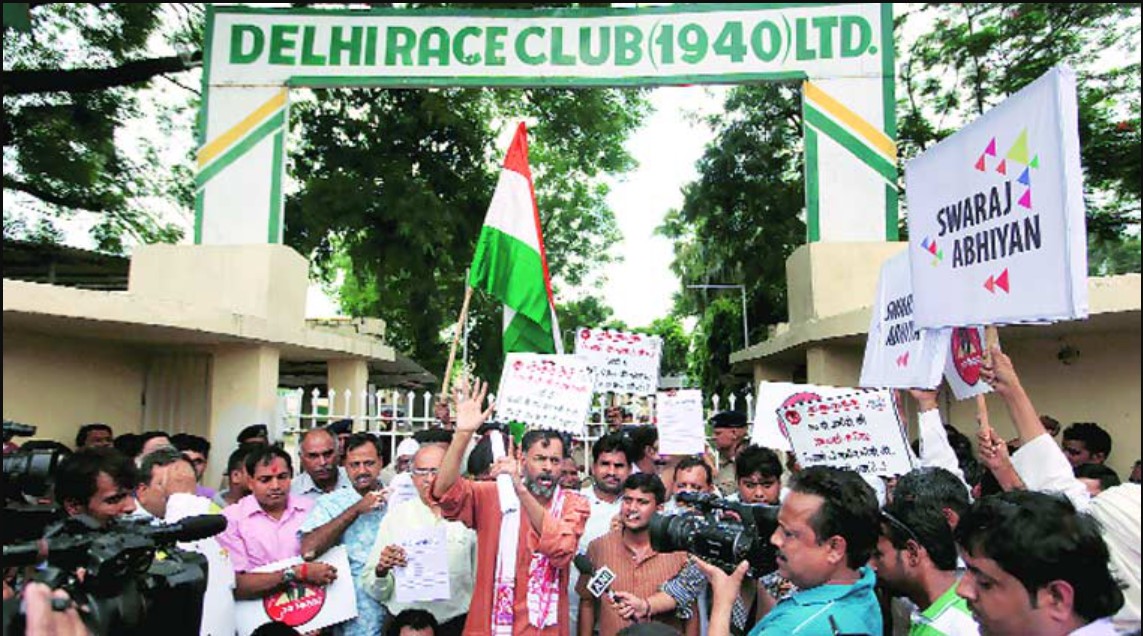


The Supreme Court of India made a significant ruling by reversing a High Court decision that had previously supported the summoning of the Delhi Race Club (1940) Ltd. and its officials. Justice J.B. Pardiwala's ruling deals with important issues related to the legal proceedings in cases of suspected financial disagreements.
Background
The situation arose from a report submitted by Vipin Kumar Agarwal claiming that the Delhi Race Club (1940) Ltd., as well as its executives and the Delhi Horse Trainers Association, did not settle a debt of ₹9,11,434 for items provided over a specific duration. Agarwal Udyog, the company owned by Agarwal, had been providing horse feed to the club since 1990. Nonetheless, beginning in 1995, the Horse Trainers Association was responsible for making the payments, but they reportedly stopped after 2017. The accused was initially summoned by the Additional Chief Judicial Magistrate in Khurja, Bulandshahar, under Section 406 of the Indian Penal Code for criminal breach of trust. The appellants took the order to the High Court where their request to cancel the summoning was rejected.
Observations made by the High Court
The High Court affirmed the magistrate’s ruling, reaching the conclusion.
Based on the statements provided in the complaint, it appears to be a situation involving a complainant who regularly supplied Oats specifically for horses. In 1995, the complainant was requested to generate an invoice for the 'Association'. The plaintiff consented and proceeded to submit invoices on behalf of the 'Association'. Following 2017, a sum of Rs. The applicants were required to pay 9,11,434/-. He got in touch with Delhi Race Club (1940) Ltd. and was instructed to reach out to the 'Association'. The Delhi Race Club (1940) Ltd. and the 'Association' are not distinct legal entities. The individuals applying and the 'Association' colluded together to commit fraud against the complainant.
Supreme Court's Decision
The Supreme Court reversed the High Court decision, stressing the extent of the investigation allowed by Section 202 of the CrPC. During the process of issuing proceedings, the Magistrate's duty is solely to decide if there are enough reasons to continue. The Court declared: At the point of issuing process, it is established that it is not the Court's responsibility to determine if the accused will ultimately be found guilty or not. At this point, the focus is solely on deciding if there are valid reasons to continue with the case or not. The Court observed that the accusations, if accepted as true, did not amount to sufficient evidence for a criminal breach of trust case. It was also noted that the disagreement, which mainly dealt with outstanding payments, seemed to be more of a civil matter rather than a criminal one.
Conclusion
The Supreme Court's decision highlights the importance of making a clear differentiation between civil disagreements and criminal accusations. The ruling creates a standard for dealing with comparable situations, emphasizing that legal action should not be taken in criminal court for matters that are primarily civil in nature. This ruling emphasizes that during the summoning stage, the Court should confirm the existence of a solid foundation for criminal charges and not solely depend on the accusations mentioned in the complaint. The decision not only settles this specific case but also gives direction on how criminal procedure is applied in financial disputes.
TAGS: Supreme Court Delhi Race Club (1940) Ltd State of Uttar Pradesh Summoning Order Criminal Breach of Trust Section 406 IPC High Court